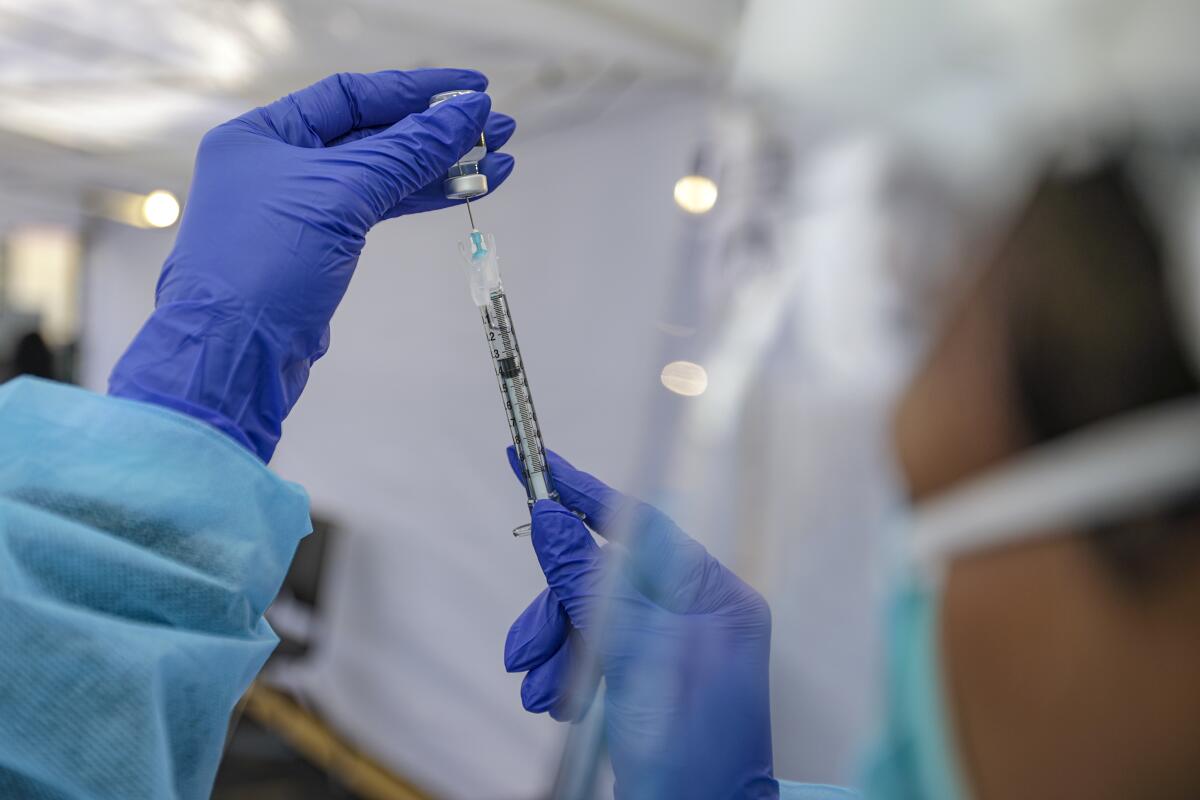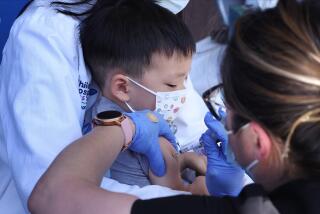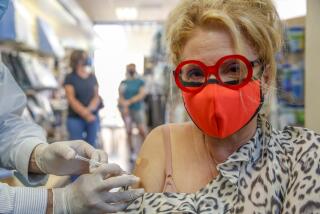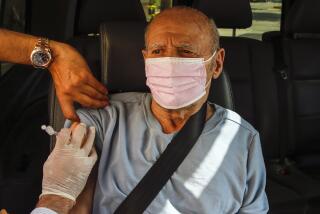California OKs expansion of who can get COVID-19 vaccine to avoid doses going to waste

- Share via
In an effort to avoid wasting COVID-19 vaccine and help speed up the vaccine rollout, the state is instructing local health departments and providers to expand vaccine prioritization to community healthcare workers, public health field staff, primary care clinics, specialty clinics, laboratory workers, dental clinics and pharmacy staff.
The state has also told officials that if a surplus remains even after all those eligible to receive the Pfizer-BioNTech and Moderna vaccine under expanded criteria have been granted access, they should move to Tier 1 of the next phase of distribution, which has not yet officially taken effect.
That group includes individuals who work in education, child care, emergency services, food and agriculture, as well as those 75 and older.
The announcement comes amid a slower than anticipated vaccine rollout throughout the state. The slowdown has been blamed on a variety of issues including the fact that some frontline workers have declined the vaccine and the state has lacked a regimented plan when it comes to leftover doses.
On Monday, Gov. Gavin Newsom said that distribution rules would be eased to prevent vaccine from going to waste.
“We want to see 100% of what’s received immediately administered in people’s arms, and so that’s a challenge,” he said during a briefing. “It’s a challenge across this country — it’s a challenge, for that matter, around the rest of the world. But that’s not an excuse.”
Last month, the state health department released guidance that said vaccine doses may be offered to people in lower priority groups when demand eases and doses are about to expire.
“Health Departments may temporarily adjust prioritization based on other resource constraints while continuing efforts to immunize higher priority groups as soon as feasible,” the guidelines state.
To date, a total of 586,379 vaccine doses have been administered throughout the state. A total of 2,052,025 doses, which includes the first and second dose, have been shipped to local health departments and facilities, CDPH said.
More to Read
Sign up for Essential California
The most important California stories and recommendations in your inbox every morning.
You may occasionally receive promotional content from the Los Angeles Times.











